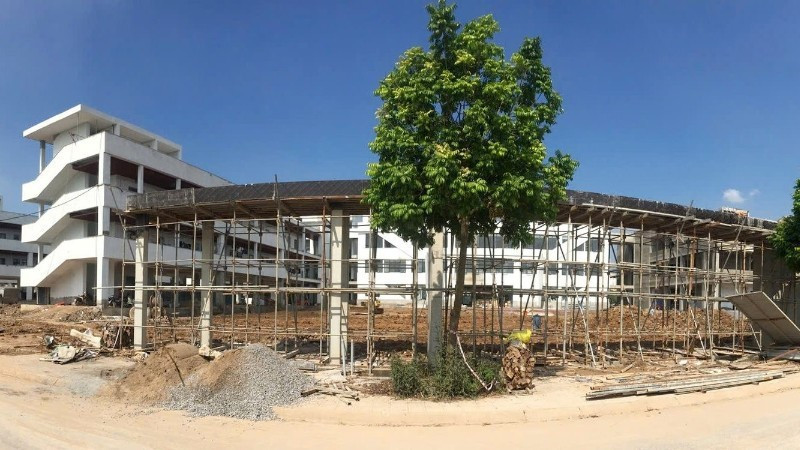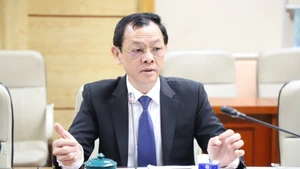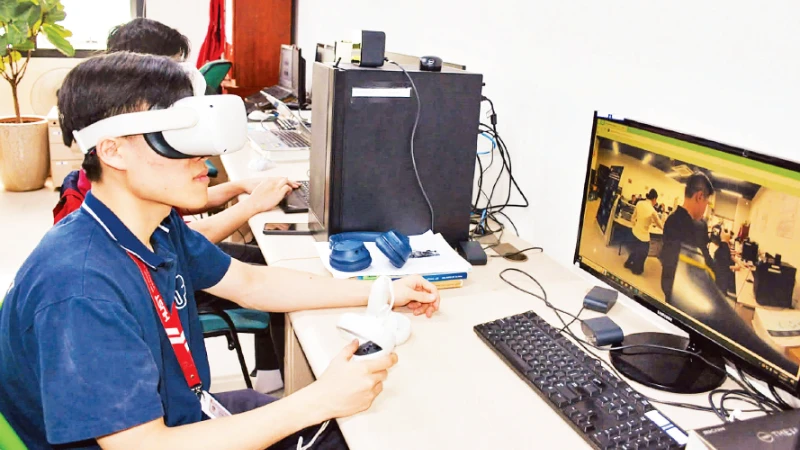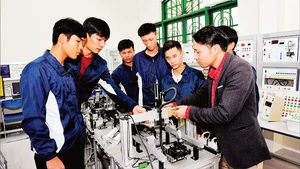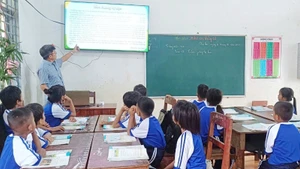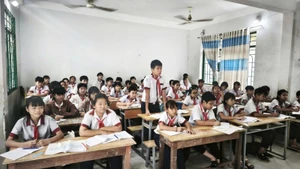More enrolment opportunities
With the establishment of two new public high schools — Phuc Thinh in Phuc Thinh Commune and Do Muoi in Yen So Ward — as well as the renovation and expansion of existing schools, the enrolment quota for grade 10 in the 2025–2026 academic year has increased by 3% compared to the previous year, reaching approximately 64%. This means around an additional 5,000 students will have the opportunity to attend public schools.
Beyond easing pressure at the upper secondary level, Ha Noi has invested in building a modern school network that meets educational demands across all levels.
According to the municipal Department of Education and Training, Ha Noi currently leads the country in terms of both the scale and quality of mass education. The school network has expanded steadily, with increasing investment in facilities that are progressively being upgraded, standardised and modernised to serve the learning needs of the capital’s children.
The city is now home to more than 2,900 schools and 2.3 million students, including 23 high-quality schools and nearly 80% of public schools meet national standards.
In the 2024–2025 academic year alone, the city built or established 35 new schools. It focuses on investing in the construction of seven advanced integrated schools, each covering over five hectares. From 2025 to 2030, Ha Noi plans to build an additional 30–35 new public upper secondary schools to meet student demand.
“This reflects the great efforts of the city and its localities in allocating land and resources for school construction,” stressed Director of the Department of Education and Training Tran The Cuong.
Prioritising resources for education
To improve the school network across the city, Ha Noi has consistently prioritised capital for investment in education. It has actively implemented Resolution No. 02/NQ-HDND dated April 8, 2022, issued by the Municipal People’s Council, and Plan No. 139/KH-UBND dated May 6, 2022, issued by the Municipal People’s Committee. These documents focus on investing in and renovating public schools to meet national standards, upgrading the healthcare system, and preserving historical sites.
During the 2021–2025 period, the city’s budget has supported 1,458 projects across education, healthcare, and heritage, with a total investment of nearly 44.06 trillion VND.
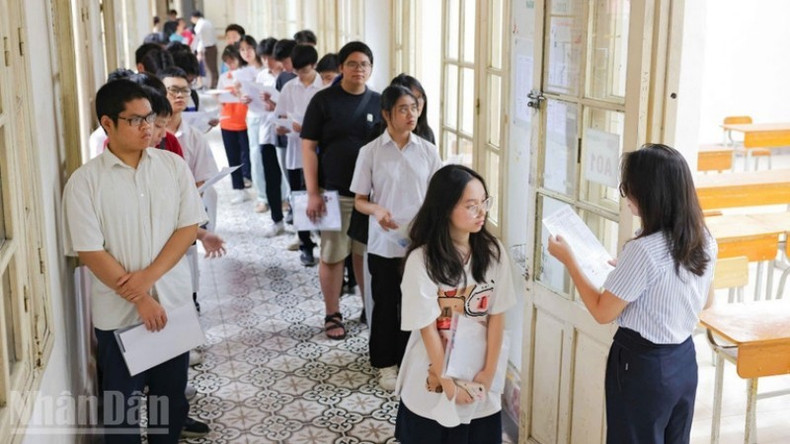
Each year, Ha Noi reviews and adjusts its public investment plans, giving priority to school construction projects. Localities have also proactively allocated their own budgets, dedicating around 50% of their local public investment plans to the development of school infrastructure.
Under the Capital Planning for the 2021–2030 period, with a vision to 2050, Ha Noi has outlined clear goals: prioritising the use of land after relocating factories, offices and universities to build general education schools; developing schools in association with urban renewal projects; ensuring distribution of upper secondary schools according to population needs; and giving priority to inner-city areas where schools are lacking.
A representative of the People’s Committee of Bach Mai Ward stated that, after allocating office space for relevant agencies and units, the ward authorities would review and redistribute the remaining premises to serve the health and education sectors, as well as community activities — with a particular focus on meeting national standards for schools.
Ha Noi's consistent policy is to make strong investments in educational infrastructure, including the construction and upgrading of schools from kindergarten to university level, affirming its position as a leading educational hub in the country and gradually moving towards international standards.
Chairman of the Ha Noi People’s Committee Tran Sy Thanh
According to the Capital Planning, Ha Noi aims to completely resolve the shortage of schools and classrooms, ensuring convenient and age-appropriate access to education with high quality. The city plans to add 109 upper secondary schools and 31 general education schools with multiple levels. The proportion of public schools meeting national standards is expected to reach between 85% and 90%.
Director of the Ha Noi Department of Education and Training Tran The Cuong stated that the city continues to review and reorganise the planning of its school network and standardise educational infrastructure to ensure an adequate number of schools and classrooms in line with regulations. It will also allocate additional land and invest in the construction of new schools; prioritise the use of land made available by the relocation of government offices and universities for the development of public schools; and encourage as well as facilitates the growth of non-public schools in suburban areas and new urban zones.
Chairman of the Ha Noi People’s Committee Tran Sy Thanh emphasised that the city’s consistent policy is to make strong investments in educational infrastructure, including the construction and upgrading of schools from kindergarten to university level, affirming its position as a leading educational hub in the country and gradually moving towards international standards.
